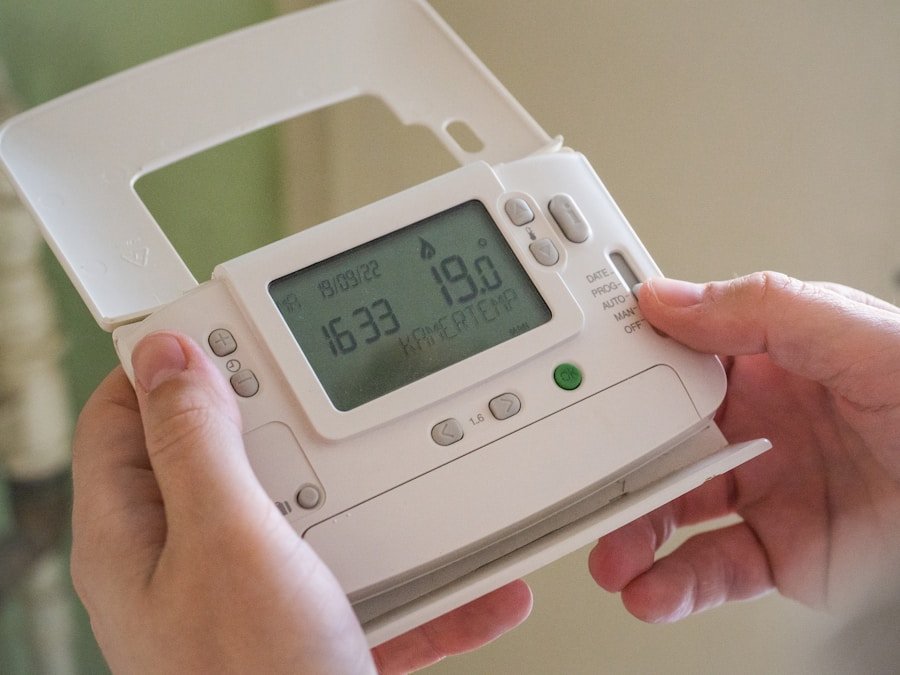When cultivating zucchini in a container, selecting the appropriate vessel is crucial. Zucchini plants have extensive growth requirements, necessitating a container with a minimum depth and width of 24 inches to accommodate their sprawling habit. This spacious environment enables the plant to develop properly.
Furthermore, the container should feature drainage holes to prevent water accumulation at the bottom, which can lead to root rot. In addition to size, the material composition of the container is a vital consideration. While plastic containers are lightweight and portable, they can rapidly heat up in direct sunlight, potentially harming the zucchini plant.
Wooden or ceramic containers, on the other hand, provide superior insulation for the roots and help regulate temperature fluctuations. The ultimate objective is to create a stable and spacious environment that fosters optimal growth and development of the zucchini plant.
Key Takeaways
- Choose a large container with good drainage for growing zucchini in a small space
- Consider compact zucchini varieties such as ‘Patio Star’ or ‘Eight Ball’ for container gardening
- Use well-draining soil and a balanced fertilizer to support the growth of zucchini in a container
- Ensure consistent watering and at least 6-8 hours of sunlight for healthy zucchini plants in containers
- Keep an eye out for common pests and diseases, and prune zucchini plants regularly for a bountiful harvest
Selecting the Best Zucchini Varieties for Container Gardening
Compact Varieties for Small Spaces
Not all zucchini varieties are well-suited for container gardening, so it’s important to choose a variety that is specifically bred for small spaces. Look for compact or bush varieties of zucchini, such as ‘Spacemiser’ or ‘Eight Ball’, which are specifically designed to thrive in containers. These varieties typically have a more compact growth habit and produce smaller fruits, making them ideal for small space gardening.
Climate Considerations
When selecting a zucchini variety for container gardening, it’s also important to consider the climate in your area. Some varieties are more heat-tolerant, while others are better suited for cooler climates. Additionally, consider the length of the growing season in your area, as some varieties may have a shorter or longer maturation period.
Ensuring a Successful Harvest
By choosing a variety that is well-suited for your specific climate and growing conditions, you can ensure a successful harvest of zucchini from your container garden.
Soil and Fertilizer Requirements for Growing Zucchini in a Container
The soil you use for growing zucchini in a container is crucial to the success of your plants. Zucchini plants require well-draining soil that is rich in organic matter. A good potting mix for zucchini should be light and fluffy, with plenty of organic material such as compost or peat moss.
Additionally, adding some perlite or vermiculite to the soil mix can help improve drainage and aeration, which is essential for healthy root development. In terms of fertilizer, zucchini plants are heavy feeders and require regular applications of nutrients to support their rapid growth and fruit production. When planting zucchini in a container, it’s important to use a slow-release fertilizer that will provide a steady supply of nutrients over the course of the growing season.
Additionally, you can supplement with a liquid fertilizer every few weeks to ensure that your zucchini plants have all the nutrients they need to thrive.
Watering and Sunlight Needs for Container-Grown Zucchini
Proper watering and sunlight are essential for growing zucchini in a container. Zucchini plants require at least 6-8 hours of direct sunlight each day to thrive, so it’s important to place your container in a sunny location. If you’re growing zucchini indoors, consider placing your container near a south-facing window or using grow lights to provide adequate light for your plants.
When it comes to watering, zucchini plants prefer consistently moist soil, but they don’t like to be waterlogged. It’s important to water your container-grown zucchini regularly, especially during hot and dry weather. However, be sure to allow the soil to dry out slightly between waterings to prevent root rot.
To help retain moisture and reduce evaporation, consider adding a layer of mulch on top of the soil in your container.
Managing Pests and Diseases in Small Space Zucchini Gardening
Pests and diseases can be a major challenge when growing zucchini in a container, so it’s important to be proactive about managing these issues. One common pest that affects zucchini plants is the squash vine borer, which can cause significant damage to the stems and leaves of the plant. To prevent squash vine borers, consider using row covers or applying an insecticidal spray early in the season.
Another common pest that affects zucchini plants is the cucumber beetle, which can transmit bacterial wilt and other diseases. To control cucumber beetles, consider using yellow sticky traps or applying an insecticidal soap to deter these pests from your plants. Additionally, practicing good garden hygiene by removing any diseased or infested plant material can help prevent the spread of pests and diseases in your container garden.
Harvesting and Pruning Tips for Container-Grown Zucchini
Harvesting zucchini from your container garden is an exciting part of the growing process. Zucchini should be harvested when they are still small and tender, typically when they are 6-8 inches long. It’s important to check your plants regularly for ripe zucchinis, as they can grow quickly and become overripe if left on the plant too long.
To harvest zucchini, use a sharp knife or scissors to cut the fruit from the plant, being careful not to damage the stems or leaves. In addition to harvesting, pruning is an important aspect of growing zucchini in a container. Regular pruning can help promote air circulation and reduce the risk of disease in your plants.
When pruning zucchini, remove any dead or diseased leaves, as well as any suckers or side shoots that are growing from the main stem. This will help keep your plants healthy and productive throughout the growing season.
Creative Ways to Use Zucchini from Your Container Garden
Once you’ve successfully grown zucchini in your container garden, you’ll likely have an abundance of this versatile vegetable on hand. There are countless creative ways to use zucchini in your cooking, from grilling and roasting to baking and sautéing. One popular way to use zucchini is to make zoodles, or zucchini noodles, which can be used as a low-carb alternative to traditional pasta.
Another creative way to use zucchini from your container garden is to make zucchini bread or muffins. Zucchini adds moisture and texture to baked goods, making it a popular ingredient in sweet treats. Additionally, you can use zucchini to make fritters, pancakes, or even pizza crusts for a healthy and delicious twist on classic recipes.
In conclusion, growing zucchini in a container is a rewarding and enjoyable experience that allows you to enjoy fresh produce even in limited space. By choosing the right container, selecting the best varieties, providing proper soil and fertilizer, ensuring adequate sunlight and water, managing pests and diseases, harvesting and pruning properly, and getting creative with how you use your zucchinis, you can successfully grow this versatile vegetable in your small space garden. With some patience and care, you’ll be able to enjoy a bountiful harvest of delicious zucchinis from your container garden.
FAQs
What is small space gardening?
Small space gardening refers to the practice of growing plants in limited or confined areas, such as balconies, patios, or small yards. It often involves using containers or vertical gardening techniques to maximize space.
Can zucchini be grown in a container?
Yes, zucchini can be successfully grown in a container. Choose a large container with a minimum of 5 gallons in size to accommodate the plant’s extensive root system.
What are the key considerations for growing zucchini in a container?
When growing zucchini in a container, it’s important to provide adequate space, sunlight, water, and nutrients. Choose a well-draining potting mix and ensure the container has good drainage to prevent waterlogged soil.
How much sunlight does zucchini need when grown in a container?
Zucchini plants require at least 6-8 hours of direct sunlight per day when grown in a container. Choose a sunny location for your container and rotate it periodically to ensure even sun exposure.
What are some tips for successfully growing zucchini in a container?
To successfully grow zucchini in a container, provide regular watering, fertilize the plant with a balanced fertilizer, and monitor for pests and diseases. Additionally, consider providing support for the zucchini plant as it grows to prevent it from sprawling.





